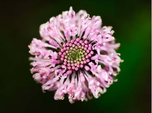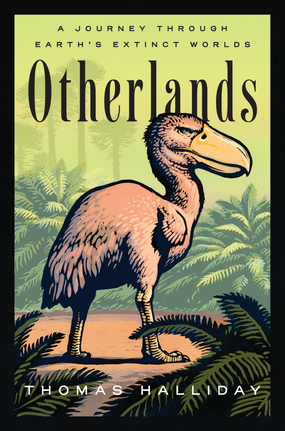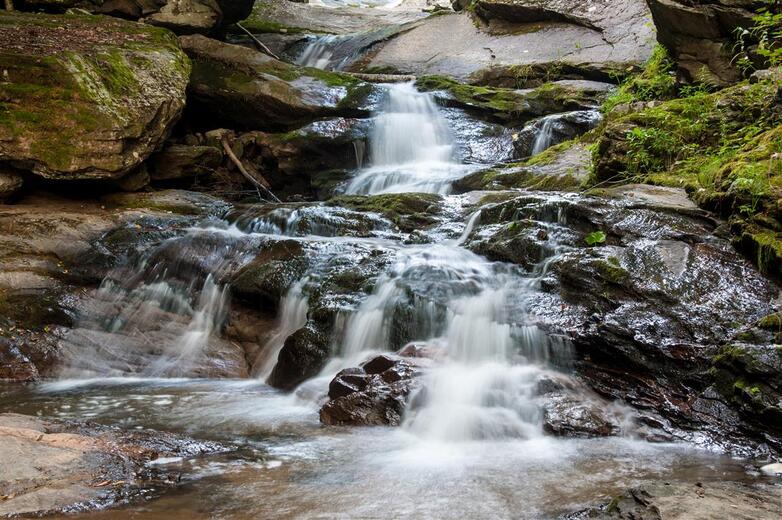 On September 6-8, 2022, Southern Conservation Partners teamed with the North Carolina Natural Heritage Program, North Carolina Botanical Garden, The Nature Conservancy, and others to co-sponsor a three-day forum on the Future of Conservation that brought together over 140 participants and key experts on biodiversity, changing climate resilience planning, environmental justice and inclusion from all over North Carolina for dialogue and to develop strategies to better understand and protect imperiled species and ecosystems. (View the PROGRAM here.) Below download slides from the introductory plenary presentation, titled Diversity, Resilience, Learning, Place, and Conservation, by Dr. Alan Weakley, University of North Carolina Herbarium Director.
0 Comments
 Most of the information and viewpoints found on the Conservation South website focus on issues, opportunities, and resources directly concerned with environmental conservation and restoration in the southern U.S. This book review is different: the topic is a “deep time” perspective. British paleontologist and evolutionary biologist Thomas Halliday has authored Otherlands: Journey in Earth’s Extinct Ecosystems (Penguin Random House, 2022), a fascinating overview of how Earth’s ecosystems and biota have dramatically changed over the long 4-billion-years timeline of life and tectonic forces on our planet. Each of Halliday’s sixteen chapters describes wholesale changes in ecosystems and life forms that have repeatedly occurred throughout eras of Earth history. Earth is now a “human planet,” asserts Halliday, nearly totally affected by we humans. He observes, “The world as it is today is a direct result . . . of what has gone before. Much of life in the past happens in a steady state of slow-changing existence, but there are times when everything can be upended. . . . It is by looking at the past that palaeobiologists, ecologists and climate scientists can address the near- and long-term future of our planet, casting backwards to predict possible futures. Unlike past occasions . . . our (human) species is in an unusual position of control over the outcome (of a fundamentally altered biosphere). We know that change is occurring, we know that we are responsible, we know what will happen if it continues, we know that we can stop it, and we know how. The question is whether we will try.” <continued . . .> The following is excerpted from a National Geographic magazine essay (Sept. 2020 issue) and from Enric Sala’s book, The Nature of Nature: Why We Need the Wild (2020). (Britain’s Prince Charles and Harvard biologist E.O. Wilson furnish the book’s introductions.)
“If we degrade habitats, animals become stressed and shed more viruses. On the other hand, habitats with diverse species harbor less disease. . . . Nature controls viruses – filtering them out of the system – that we’re only now recognizing. . . . "We are all in this together, all species on the planet. So what can we do? While the world has stepped up to help those in need during the COVID-19 outbreaks, we might also start thinking about how to prevent the next zoonotic pandemic. "We have seen, again and again, that even though we don’t know what most of them do, all wild animals have important jobs that keep our biosphere running. If we’ve learned anything from our study of natural ecosystems as it applies to these recent diseases, it’s that instead of exterminating wild animals to stop the passage of disease to people, we should do the opposite: We should safeguard the natural ecosystems that are their homes and, if needed, help set them back on their path to maturity through rewilding. "If we degrade habitats, animals become stressed and shed more viruses. On the other hand, habitats with diverse microbial, plant, and animal species harbor less disease. Biodiversity dilutes any viruses that emerge and provides a natural shield that absorbs the fallout from pathogens. "Clamping down on the illegal trade of wildlife, ending deforestation, protecting intact ecosystems, educating people about the risks of consuming wildlife, changing the way we produce food, phasing out fossil fuels, and transitioning to a circular economy: these are the things we can and must do. "Even if it’s just for selfish reasons—for our own survival—now more than ever, we need the wild. A healthy natural world is our best antivirus.” In this time of peril and anxiety, we at Southern Conservation Partners offer our best wishes for health and security to our community of friends, supporters,website visitors, and all stewards of nature. None of us know the forthcoming full dimensions and consequences of the expanding pandemic on our society, on the economy, on our own families and loved-ones. The quarantines, travel curtailment, and cancellations further stress and isolate us. We can only hope for recovery and return to better health and sensibility.
The current global human health, economic, and political crises—and the cascading deterioration of the Earth’s biota and ecosystems generated by our altered global climate—hopefully give us pause and cause for reflection and sincere thought about how we humans are profoundly interconnected with the health of our Earth’s environment and its support systems. A central lesson to be learned or reinforced is to more keenly realize the interconnections among us humans and with the natural world. We recommend that you and your family and loved ones find solace and inspiration outside in nature. Without access to most of our regular activities—with our work places, schools, restaurants, stores, museums, public libraries closed—try to increase your time in nature. Find outdoor recreation and restoration of spirit in a local park, walk a trail, bike a greenway, paddle on a favorite pond or stream, cultivate and expand your home garden and native wildlife-friendly plantings. It’s extraordinary to step outside and reconnect with nature. You will find solace and satisfaction and peace in the “wild places” that are immediately close by. Nature and wild things around us offer to stitch back together the health of our planet and communities—the place we know as Home. Take a pledge in these unsettled times to be a better friend of nature and better citizen of your whole human and natural community. Slow down, breath deeply (best done on a natural trail or even in your own backyard), and recommit to preserving and restoring wild and natural places. And help your neighbors and community to survive and recover. Keep on fighting the battles for right thinking and actions. Be hopeful and contribute to making your community and country and Earth more healthy and resilient. Now step outside into your own piece of nature! [And if the weather or time isn’t right for outside spiritual restoration, we suggest you add reading more of our website’s Viewpoint essays, along with re-reading from your stockpile of favorite inspirational books at home or on the internet.] —Chuck Roe, president, Southern Conservation Partners With ecological systems being altered and assaulted at unprecedented scale and rate, it is time to increase our focus on ecological restoration and renewal. Our fragile ecological systems in the southern U.S. and across the entire Earth are damaged and imperiled. Preservation and conservation are not enough; we need to work more intensively to restore abused ecological systems and natural habitats.
In an essay by conservation biologist and Aldo Leopold biographer Curt Meine, re-published in the summer 2018 issue of The Leopold Outlook, the author reminds us that the relationship between humans and the world is reciprocal. “As we work to heal the Earth, the Earth heals us.” Meine recalls that Aldo Leopold, the father of wildlife conservation in America and pioneering figure in ecological restoration in the 1930s and 40s, noted that “Conservation, viewed in its entirety, is the slow and laborious unfolding of a new relationship between people and land.” Meine observes, “Conservation has evolved continually over the last century in response to the complex realities of social and environmental change. . . . Now, however, conservation finds itself caught in an intense and persistent vortex. Much of the debate involves our understanding of ecosystem change, the human role in affecting those changes, and the perils and potential of new technologies to respond to change.” <<Continued>> |
When we see land as a community to which we belong, we may begin to use it with love and respect.... Conservation, viewed in its entirety, is the slow and laborious unfolding of a new relationship between people and land." There is in fact no distinction between the fate of the land and the fate of the people. When one is abused, the other suffers. From the PresidentSCP President Chuck Roe looked at land conservation along the route of John Muir's "Southern Trek." About ViewpointThis blog offers views of our Board and partners. We invite your viewpoint on the following questions: Archives
April 2024
Categories
All
|
||||||||


 RSS Feed
RSS Feed